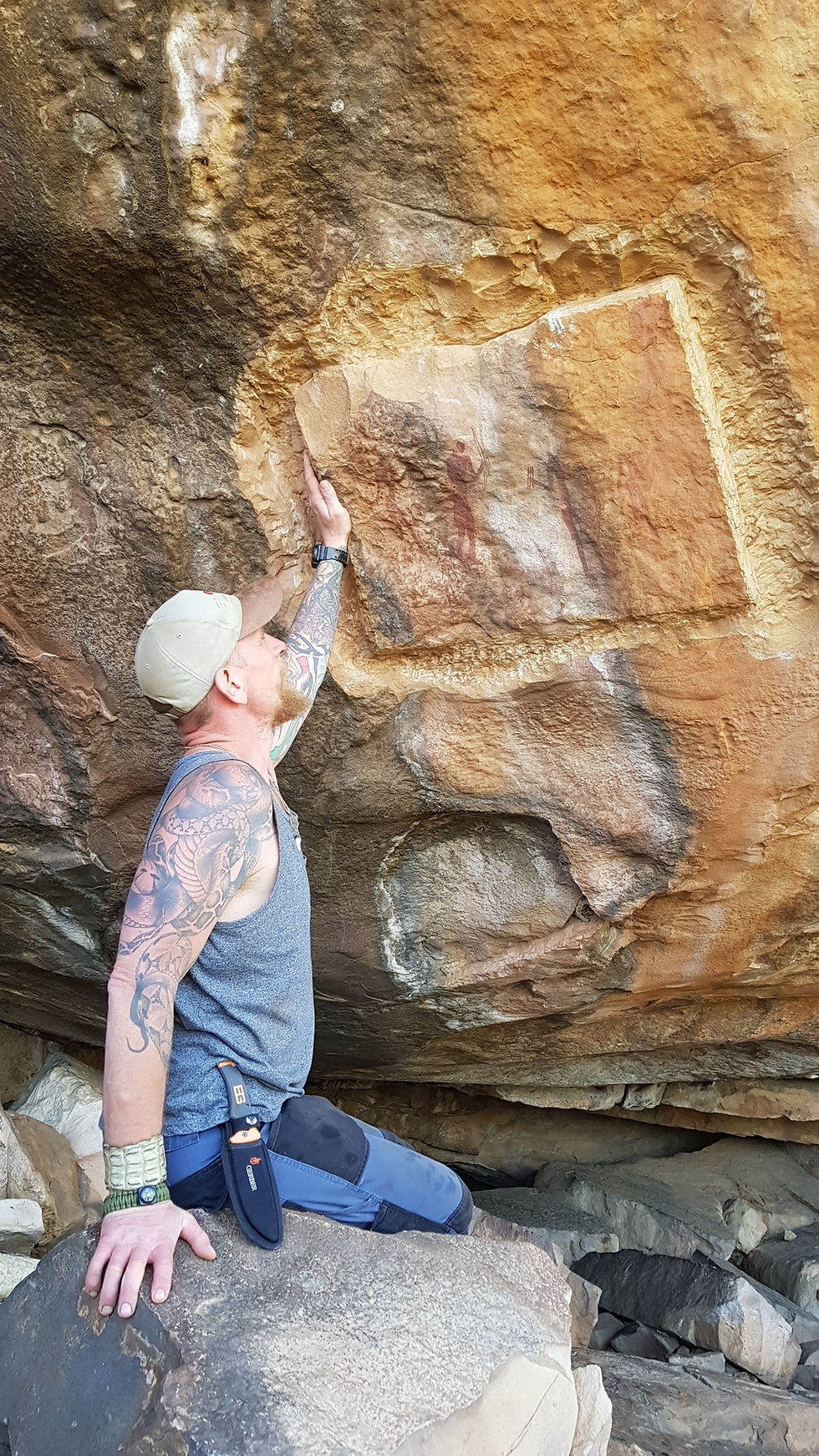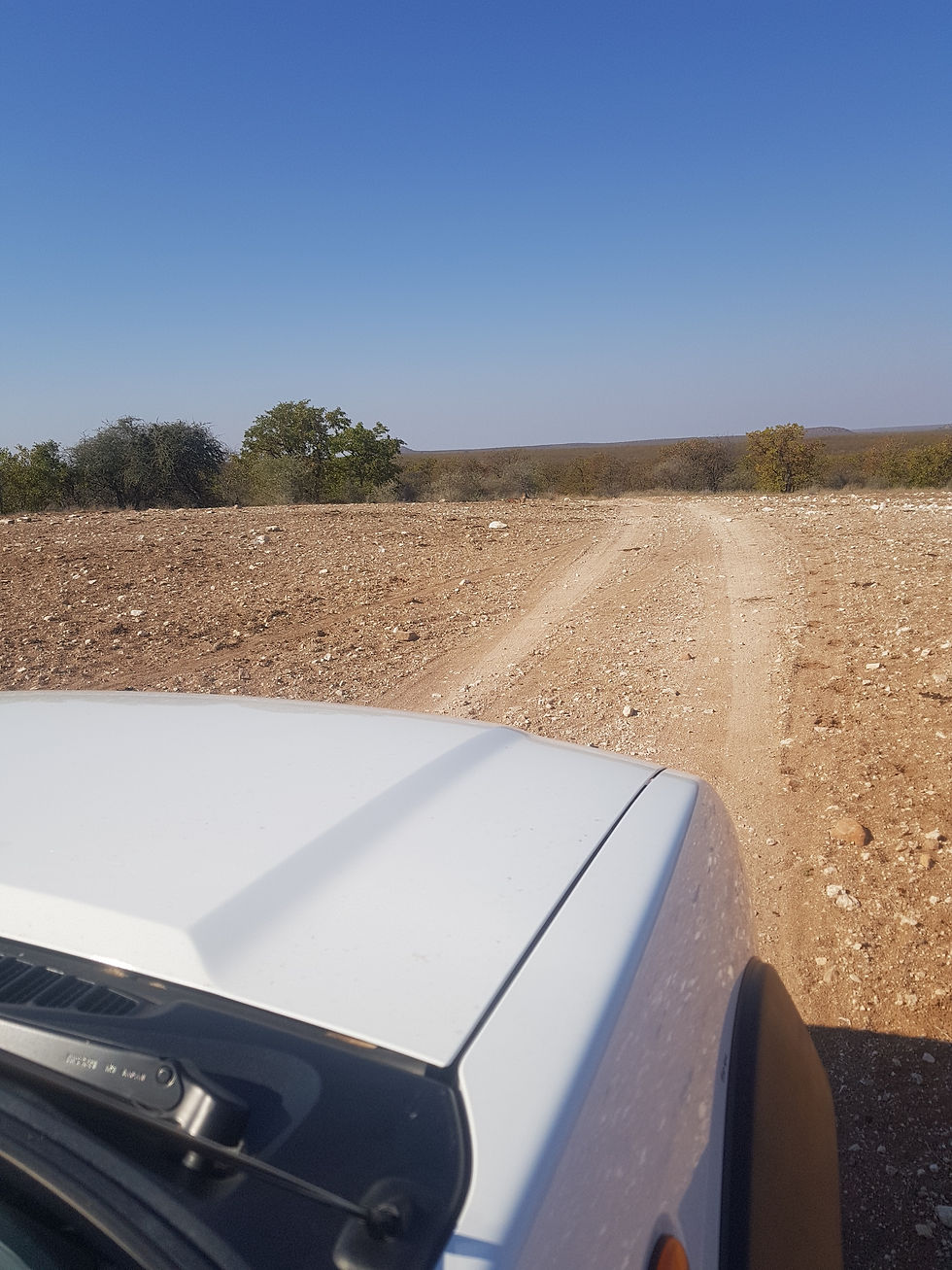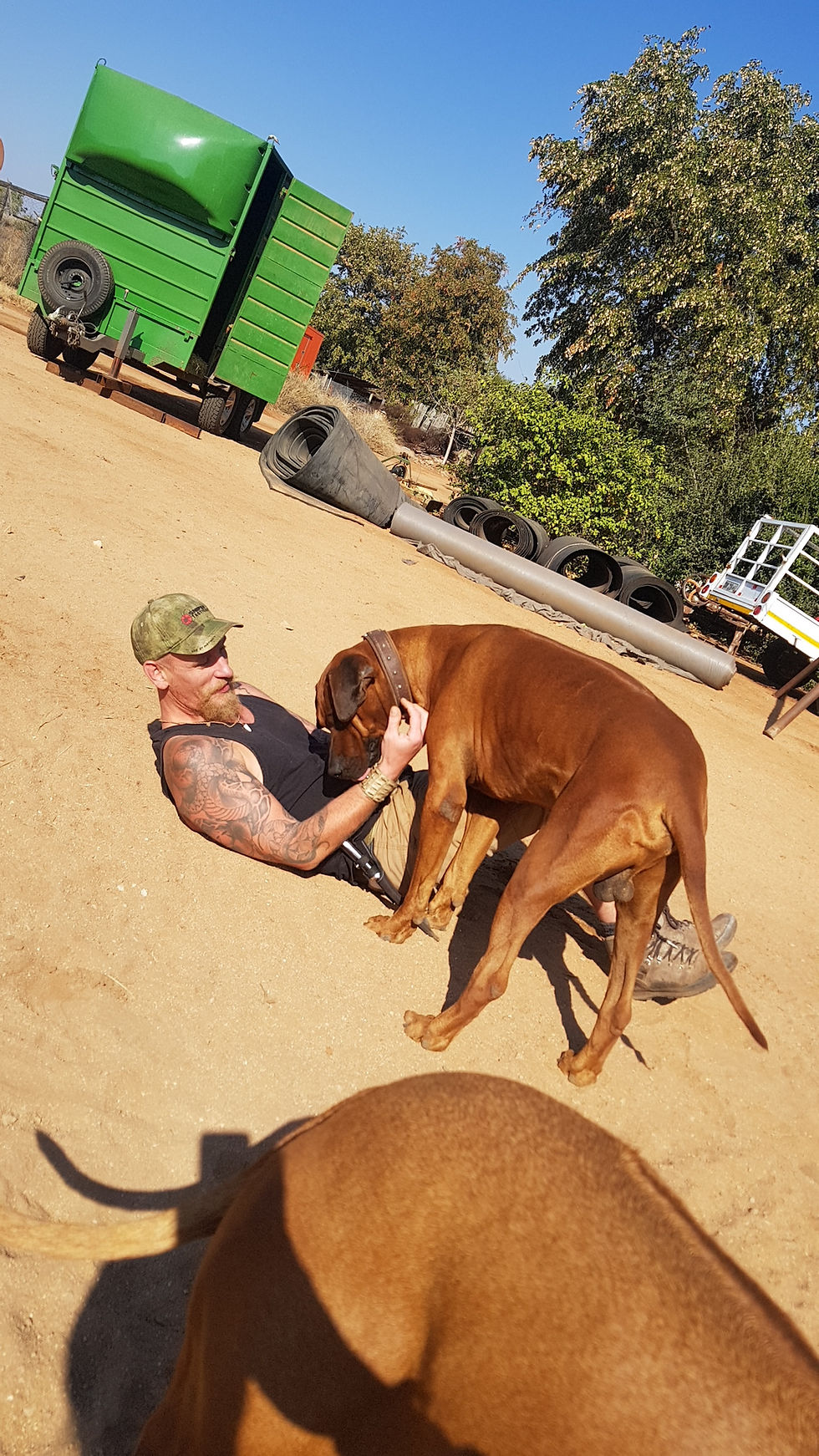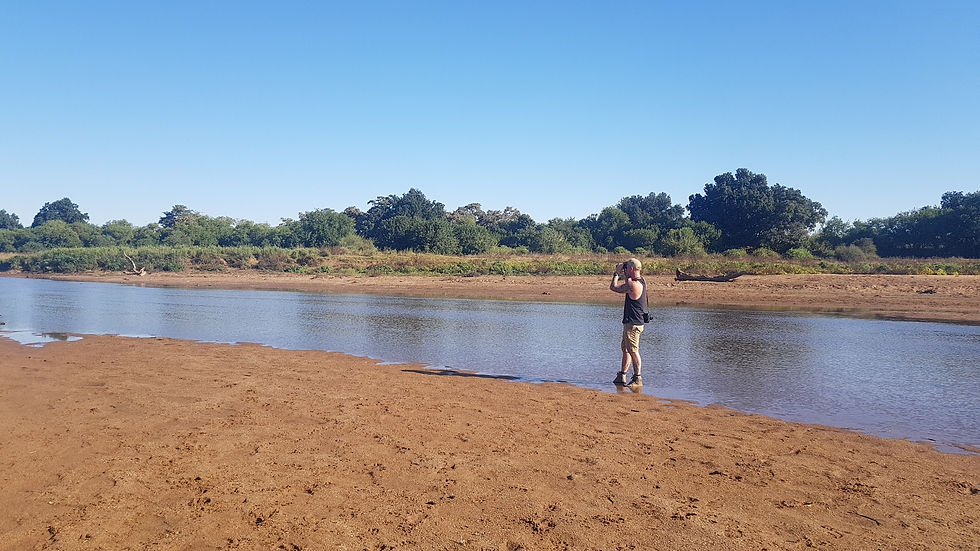Welcome to our first blog.
- MichaelBradleyEngage
- Nov 10, 2022
- 10 min read
Updated: Nov 25, 2022

Hello everyone, I hope you’re all doing well and welcome to our first blog. Before we begin, I just wanted to say a big thank you for all the support and feedback we’ve received on the website, our social media pages and our marketing campaign. It’s been an incredibly busy, difficult and exciting few weeks, but we are officially out there and have started taking bookings for next year! Without the support and encouragement of people like you we wouldn’t have been able to do this, so again, thank you. Please keep helping us grow this venture by sharing and telling people about our work, website and social media pages.
Why write this blog?
We want to use this blog as a way to communicate with you and share updates on the venture as a whole, our projects, our experiences in the field, and to discuss wildlife conservation and management matters in general. This way we can keep you all in the loop as to what we’re up to and more importantly why we do what we do. Over the next few months, we’ll be keeping you updated on the development of our camp and projects as well as telling you a bit about ourselves, our passion for wildlife and our motives.
Having never written a blog before, it’s been quite the difficult process thinking about how to start and what to talk about. Today, however, a lightbulb in the form of my wife’s ever-present voice and wisdom went off in my head, suggesting why not talk about why I love Africa and what it’s like living in its beautiful environment and working with its incredible wildlife. This should have been obvious really as our whole mission as a company is to do exactly that, share our experiences and life in the bush with people like you. Now, to go into all the reasons I love Africa and its wildlife would fill a book, and we can save a lot of that for talks around the campfire when you visit us. So, I thought for now I’d start at the beginning of my career and a bit of background about my history with the country. So, here goes and welcome to our new blog.
Why Africa?
A little background first. I moved out to Natal, South Africa from the UK as a 3-year-old boy and some of my earliest memories were of playing out in the bush and forests local to the town I lived in. Wildlife sightings and interactions were commonplace, and most days involved some kind of adventure, mishap or new experience. We moved back the UK in the early 90’s, which was exciting but incredibly difficult in a lot of ways. The culture shock and lack of space and wildlife was very difficult to adapt to. I’m not going to go into too much more detail here (I tend to always skip the background part of most biographies, so I’d be a hypocrite forcing you through one of my own). However, the point is, my childhood in Africa placed a deep and resolute love for this land and its inhabitants that has never left me.
“You cannot leave Africa, Africa said. It is always with you, there inside your head
Our rivers run in currents in the swirl of your thumbprints; our drumbeats counting
out your pulse; our coastline a silhouette of your soul.”
Bridget Dore
My first research trip in Africa.
In 2018 I was fortunate enough to be asked by the university I was studying at to go and assist an American postgraduate student (our very own research and volunteer coordinator, Anna Koziarski) on a lion monitoring project, investigating the efficacy of a variety of monitoring methods. This was initially planned to be the first part of a wider project in which we would hope to gain a better understanding of the lion prides moving across the Limpopo River from Botswana into this region of South Africa.

At this stage of my career, I had actually moved into more lab-based science, specialising in histology and osteology (the study of bones), and was in the process of planning a PhD project to fulfil my dreams of making it to doctorate level in academia. So, I was a little apprehensive about moving away from this, even temporarily. Moreover, leaving my wife and son for so long (the project was going to last about 3 months) was a major concern. However, as always, my wonderfully supportive and forever wise wife (there’s a theme beginning to form here) encouraged me to go and take full advantage of this opportunity. She helped me understand that as risky a career move as this would be it's what I’ve always wanted deep down, to be back in Africa.
Circumstances meant that I was going to arrive a week earlier than Anna, so it meant spending the first week alone out there. On landing, a nostalgic rush of joy and excitement hit me immediately, I was back where I belonged. It was my first time back in the country for nearly 20 years and yet it felt like I’d never left, the heat, smells and feel of the place just felt right, I was back home.
I was going to be working in Mapungubwe game reserve, a sprawling 27,000-hectare property sitting along the banks of the Limpopo River, bordering Botswana in the far North of South Africa. The drive up to the reserve taught me my first lesson about bush life out here, space and distance are very different. The area is so remote in comparison to anywhere in the UK, and the distances between places are vast. I realised very quickly that any mistakes or problems out here that we take for granted back home, a vehicle breakdown for example, would have very different repercussions to what I’m normally used to. Driving was rough before I’d even made it into the reserve, and once inside the main gate the roads got a lot worse, and I wondered what I’d let myself in for.

It was beginning to get dark, and I still had a long way to travel through the reserve before I got to the lodge. To say I was worried was an understatement - I had no phone signal, was doubting the directions I had been given and, for the first time in a long time, felt completely out of my element. Obviously, I made it to the lodge in the end, but what an introduction to working in Africa!
The first week was filled with some of the most incredible and exhilarating experiences I had ever had. Constantly being surrounded by the sights and sounds of the bush and its wildlife was and still is an unsurpassed pleasure. The rising and setting of the African sun is something that can’t be matched anywhere else in the world and being able to witness this daily never gets old.
Although there were very few people where I was, their company, knowledge and willingness to share their experience was incredible. The family who hosted us were amazing. They welcomed me, a complete stranger from another part of the world, into their home and lives unconditionally and gave us their full support, guidance, and some of the best food I have ever eaten. The reserve manager took me under his wing and taught me a lot about working in the bush and understanding and managing its wildlife. Claudius, a Zimbabwean chef working for the lodge, would often take me out and spend time teaching me about tracking, foraging and navigating the bush on foot.

My time with him and his wonderful wife Taki will never be forgotten. These are all skills that I still use to this day and hope to pass on to you our future volunteers and guests.
A lot of mistakes were made, I got lost a lot, the reserve manager insisted that I learned to navigate the property myself without maps. In hindsight this was one of the best things he could of done for me, it forced me to be independent, take risks, and learn the hard way about navigating this environment. I panicked a lot, getting your vehicle stuck in sand in lion country with no help or phone signal is quite the thing to overcome. Panic is an emotion that I had to learn to deal with very early in my time out there. I did panic a lot to begin with and naturally so - driving into a herd of angry elephants in the dark will do that to you! However, as natural as it is, panic will kill you and potentially the people and animals around you. You have to learn to overcome this and stay calm in any given situation, easier said than done sometimes but undoubtably one of the most important things I had to learn to control.
Despite all this I felt more alive and touch with what it is to be human than I ever had before. Being in the bush feels natural and real, you have to do everything with caution and purpose, your senses are alert and working overtime to keep you present and alive out there. To the best of our knowledge, this environment is where we evolved as a species, and you get a true sense of this whilst being a part of this amazing place. This is something I struggle with every time I come home to the UK. Spending months at a time in this alert state, and then coming back to the hustle and bustle, relative comfort and safety of western life is always difficult and takes some time to get used to again.
The following months were for the most part incredible, and every day further reinforced my love for this continent, its environment and its wildlife. I knew that this was where I belonged and wouldn’t be happy working anywhere else. It took a while before we encountered the lions but, once we did, being around these majestic animals changed the way I viewed all cat species forever. There’s something about the cats, from domestic cats right up to the lions we were encountering here, that I just can’t put into words. Whether it be being charged by a lion whilst on foot, sitting below a leopard as she gazes down on you from a tree or just hearing their roars and calls through the night is something that resonates deep in my DNA and always leaves me breathless.

Towards the end of the project, we took a day trip into the Tuli block of Botswana. This was my first introduction to the country, and what an experience it was! You couldn’t turn a corner without running into something amazing and elephants were everywhere. I had my first, and still to this day best, leopard encounter within 10 minutes of being in Botswana. The landscape was completely different to what it was just a few hundred metres across the border, the landscape opened up a lot and was so much more rugged and ancient than it seemed across on the SA side of the river. I later learned that this is due to the abundant elephant herds that wander the area. There are a lot less fences in Botswana which allow the animals to be free and roam greater distances across properties. The elephants push down a lot of the trees, leading to a more open bushveld and a different look to the environment.
The animals are heavily protected here and the BDF (Botswanan Defence Force) patrols are ever present. This was a little daunting at first, being pulled over by a military vehicle full of soldiers to question what you are doing there is quite an experience. However, once you understand their role, to protect the wildlife, you realise that this actually a great thing. I want to talk a lot more about Botswana, but I will save that for a future dedicated blog on the country and why we have chosen to operate out of there.
The project was a success, it took a while, but we eventually found the lions and collected some good, robust data. I’m not going to talk too much about the project here as Anna is going to write about this experience from her point of view in a future blog. All I will say here is that working with Anna was an absolute pleasure and a very steep but rewarding learning curve in regard to working with people in this environment. We had only met once before she came across to Africa and were chalk and cheese in regard to our backgrounds and views on life. However, the successes, failures, close calls and incredible experiences created a strong bond that remains to this day. This has been a consistent theme throughout the time I’ve been fortunate enough to work in the field. The nature of the work, a common goal and all the emotions it brings, does draw you closer to the people you’re sharing the experience with.
This is probably the biggest reason I wanted to build Engage Conservation Africa, I realised early on the impact that Africa had on me and my relationship with nature, other people, and being human in itself. I’d like to share this way of life and the experiences with as many people as possible, and with Engage I have a way to achieve this to some degree.

Unfortunately, our project at Mapungubwe ended prematurely due to Discovery channel wanting to use the property to film their Naked and Afraid show. The channel stipulated that they didn’t want researchers on the ground during filming, which happened to coincide with our research season. It was heart breaking at the time as I wanted nothing more than to spend many more years working with those lions and the amazing people on the reserve.
During my time in this area, I had been told about a sanctuary nearby who were rescuing lions from the canned hunting and lion breeding industry in South Africa. Our liaison at the wildlife department had suggested we go and visit the sanctuary on a couple of occasions. We didn’t, mostly due to lack of time and a little arrogance/ignorance on my part. Why would I want to go and see captive lions when I have a pride of wild lions to spend time with and study? I’m not a big fan of zoos or seeing animals in captivity at the best of times, I get quite upset seeing animals behind fences or bars so it made little sense to upset myself by going there.
After returning to the UK, I had to come up with a plan to continue my career in lion research, so I reached out to a few other reserves in South Africa with no luck. Coincidentally, a representative from the above-mentioned sanctuary visited our university, so I thought more out of curiosity than anything that I should go and hear what he had to say. Being desperate for a new project involving lions I begrudgingly signed up to conduct research at the sanctuary. I reasoned that at very least I’d still be working with lions and at best I’d be back in the area and could maybe forge a new working relationship with one of the landowners or reserve managers out there. Little did I know the impact the decision was going to have on me and my future in Africa.
So began my amazing time with LionWatch project SA and the incredible lions there, my return to Africa and the beginning of a whole new series of adventures. I will go into a lot more detail and continue the story in the next blog.
Thanks a lot for reading this and I hope it was an interesting read and you’ve learned a little more about us and Engage Conservation Africa. We’re going to endeavour to put these blogs out every two weeks or so. Have a great week and stay tuned for the next instalment.
Michael Bradley.








Comments